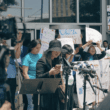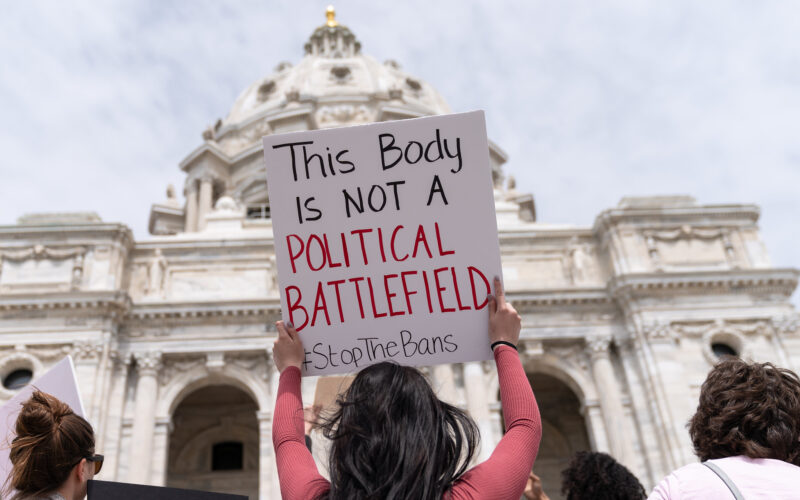Sign up here to receive The Yappie's weekly briefing on Asian American + Pacific Islander politics and support our work by making a donation.
A new report has found that nearly half of Asian Americans, Pacific Islanders, and Native Hawaiians have limited knowledge on how to access medication abortion—more commonly referred to as abortion pills, a method that has grown exponentially in demand amid GOP-led efforts to ban the procedure.
The study, which examined AAPIs’ abortion knowledge, access, and attitudes with a focus on medication abortion, revealed a variety of obstacles that make it difficult for them to access abortions—including language barriers, legal restrictions, high costs of care, and cultural stigma around sexual and reproductive health.
- Medication abortion, a method that typically consists of taking mifepristone and misoprostol to end a pregnancy, accounts for over half of all abortions in the U.S., but 47% of AAPIs did not know where to access medication abortion if they needed it, according to the study published by the National Asian Pacific American Women’s Forum (NAPAWF) and Ibis Reproductive Health.
- 40% of respondents said they had no prior knowledge about the safety of medication abortion, and a little over a third said they had not heard of or did not know if they had heard of medication abortion.
The findings reinforce abortion advocates’ concern about the way many AAPI families tiptoe around the “hush-hush” subject. Rep. Pramila Jayapal (D-Washington) herself has spoken about how her mother didn’t know about her abortion until she disclosed it publicly 22 years later.
- “Some of it was because as an immigrant from a culture that deeply values children and in a society that still stigmatizes abortion, suicide, and mental health needs, I felt shame that I never should have felt,” she said in a September 2021 House committee hearing.
- “It is important to send the message out that it is okay to talk about this and that there will be acceptance,” Rep. Judy Chu (D-California), told Hannah Zhihan Jiang in a 2021 interview for The Yappie as the Supreme Court was reviewing Texas’ six-week abortion ban.
Few studies on abortion include AAPI-specific data, and even fewer disaggregate data based on AAPI subgroups. The Centers for Disease Control and Prevention itself still categorize AAPIs as “Other” in its annual surveillance reports on abortion.
- This lack of research has obscured many disparities. A 2021 study found that the abortion rate among Asian women in New York City was 12.6 per 1,000 women, a figure higher than other racial and ethnic groups. But disaggregating the data by country of origin revealed that Indian women’s abortion rates were approximately two to six times higher than other Asian subgroups, while U.S.-born Asian women were more likely to have abortions rates were higher for immigrant Asian women.
- “Evidence also indicates that Asian women were more than twice as likely to choose medication abortion over other methods since they felt it was safer,” NAPAWF and Ibis’ report notes.
Caveat: While the study includes disaggregated data, its authors acknowledged that only 1% of survey respondents identified as Native Hawaiian and Pacific Islander, further highlighting the need for more targeted research.
- “With bans and restrictions to abortion care increasing across the country, AANHPI communities need more culturally sophisticated and language-appropriate information on sexual and reproductive health issues, and specifically about abortion,” the report says.
- NAPAWF’s interim executive director Isra Pananon also told NBC News that existing research often fails to account for the specific needs of AAPI women. “We definitely need to do more. More studies, more advocacy.”
The current state of access: With the fall of Roe, at least 20 states now restrict or ban abortions, Axios’ Oriana Gonzalez reports. Several—including Alabama, Texas, and Mississippi—have no exceptions for rape or incest.
- “Evidence also indicates that Asian women were more than twice as likely to choose medication abortion over other methods since they felt it was safer,” NAPAWF and Ibis’ report notes.
- Southeast Asia Resource Action Center has also warned that immigrants are at particular risk having to choose between an abortion or U.S. residency, Mary Yang writes for The Guardian.
- Other complications, such as cultural stigma and language barriers, already contribute to unequal access to reproductive health care, The Yappie’s Katelyn Monaco and Mary Yang note. A post-Roe America could further exacerbate these disparities.
- Over 70% of Asian adults say abortion should be legal in all or most cases compared to a U.S. national average of 61%, per a 2021 Pew Research study.
This story appeared as "The Big Story" in The Yappie's June 5, 2023 newsletter.
The Yappie is your must-read briefing on AAPI power, politics, and influence, fiscally sponsored by the Asian American Journalists Association. Make a donation, subscribe, and follow us on Twitter (@theyappie). Send tips and feedback to [email protected].









